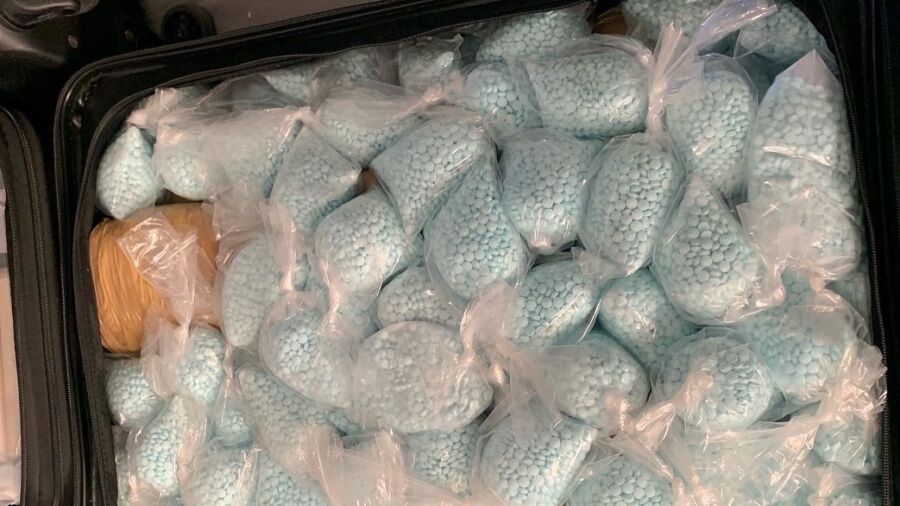U.S. Customs and Border Protection (CBP) officers intercepted a massive hoard of fentanyl-laced pills concealed in a shipment of green beans near the Southern Californian border.
“We’re spilling the beans!” read the CBP’s Tuesday press release announcing the catch by CNP officers at the Otay Mesa port of entry in San Diego, California.
“On Monday, at approximately 7:21 p.m., CBP officers encountered a 48-year-old male driver of a tractor-trailer, with a shipment manifested as green beans,” the statement read. “During initial inspection, a CBP officer referred the driver and cargo load for an intensive agriculture inspection.”
The statement continued: “A non-intrusive inspection was utilized to conduct a full scan of the tractor-trailer. After examination, irregularities were observed and CBP officers requested a CBP human/narcotic detector dog, who alerted CBP officers to the presence of narcotics.”
The CBP officers found a total of 308 packages concealed within the shipment of green beans. The packages weighed 776 pounds in total and were filled with light blue-colored pills.
The tablets were taken to a lab and found to contain fentanyl.
The 3,520,000 pills had an estimated street value of $21,120,000.
The driver was detained over charges of attempted narcotics smuggling, and was turned over to the custody of U.S. Immigration and Customs Enforcement (ICE).
“CBP recognizes our officers’ exceptional performance and applaud their continued efforts to protect and serve our communities,” said Rosa Hernandez, Port Director for the Otay Mesa Cargo Facility. “This seizure provides insight and displays how our officers work together in collaboration to keep this dangerous drug off the streets.”
The CBP is a border agency within the Department of Homeland Security tasked with overseeing U.S. borders, combining customs, immigration, border security, and agricultural protection at and between official ports of entry.
In recent years, fentanyl has become the prime focus of the illicit drug trade, according to a White House statement made last week, when it announced new efforts to combat what it called “the opioid and overdose epidemic” caused by synthetic opioids like fentanyl.
The new measures include forging an international coalition to chart and disrupt the illicit synthetic drug trade, optimizing information flows among U.S. intelligence and law enforcement agencies, and tackling illicit finance and money-laundering efforts related to drug trafficking.
Additionally, the White House plans to promote and facilitate access to the anti-opioid overdose drug naloxone.
According to the U.S. Centers for Disease Control and Prevention, overdoses involving synthetic opioids, including fentanyl, killed more than 70,000 people in the United States in 2021.
Last year, the combined efforts of the CBP, DEA, and Homeland Security seized nearly 50,000 pounds of fentanyl powder and fentanyl-laced pills.

